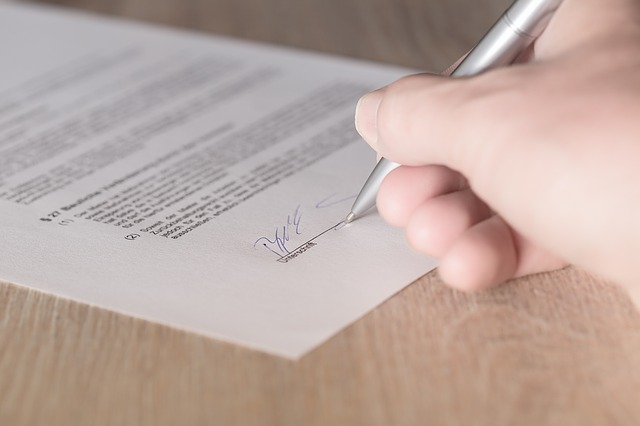Coming after the preliminary sale agreement, the signing of the deed of sale before a notary materialises the last step of the purchase process. At that point, the notary will check if the whole transaction is fully compliant with the law and, above all, he will make the transfer of property official. In most cases, this is when the buyer pays the value of the property and receives at the same time the keys of his home. This step is a requisite for any property sale and marks the beginning of a new life for both parties!
What is the difference between the sale agreement and the deed of sale?
Often enough, the process of buying a property starts with the drafting of a preliminary sale agreement, which takes place before signing the final deed of sale at the notary’s office. The main difference between these two formalities has to do with their mandatory nature: the sale agreement is an optional step while a property cannot be sold and purchased without a notary deed.
Though the sale agreement is not a legal requirement, real estate professionals usually urge both parties to materialise this first agreement. Indeed, formalising it makes the notarial meeting easier and avoids last minute surprises as the seller and the buyer have already agreed on the terms before, and have already defined the respective rights and duties that they shall respect.
The name of the notary responsible for deed of sale can be mentioned in the sale agreement. It helps anticipating this last step which will put an end to all the preparatory administrative procedures.
It is worth noting that in Luxembourg the notary has a special status as a public officer. He is not representing a party and he guarantees the legality of the transaction. Signing his name on the deed, the notary guarantees the buyer that the property is not encumbered with a previous mortgage. He shall also perform researches on the property and its origin to guarantee that the seller is the real owner. The notary is then responsible for the registry and transcription procedures.
“The notary is then responsible for the registry and transcription procedures.”
Find our ads on:
Signing the deed of sale: what are the implications?
Most of the time, you do not become the owner when signing the deed of sale: you are the owner from the moment you sign the sale agreement and you obtain the loan agreement from your bank. In fact, the sale agreement is a commitment to purchase the property, in compliance with clearly defined terms and conditions (price, payment terms, suspensive condition to obtain a loan). Logically enough, from the moment you sign it you become the owner.
But this status does not imply that you can already enjoy the property insofar as the payment has not been made yet and the ownership still lacks a notarial approval. In that context, it is the signing of the deed of sale that grants you all the rights on your new property, providing of course that you pay the whole amount sets in the sale agreement. This is when you shall receive the keys of your new home. The seller is then no longer allowed to enter it and you are free to move in it, to rent it or to start some works in it.
In case no sale agreement was concluded, you are not the legal owner of the property before the notarial deed. In this configuration, the deed of sale also symbolises your new status.
Though mandatory, the notarial deed has a cost: administrative fees shall be invoiced as well as fees called “émoluments” and taxes due to the Administration (registration fee) and for the transcription. To anticipate such expenses request advice from a real estate agency.

